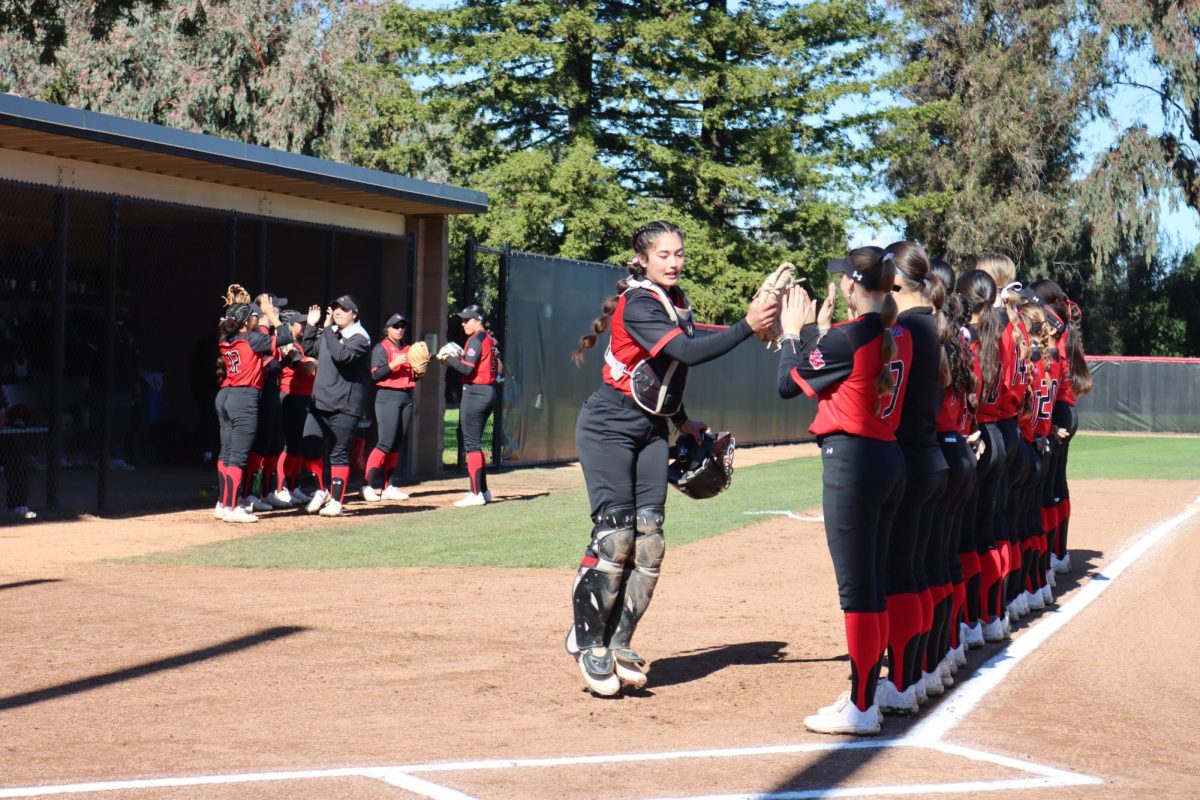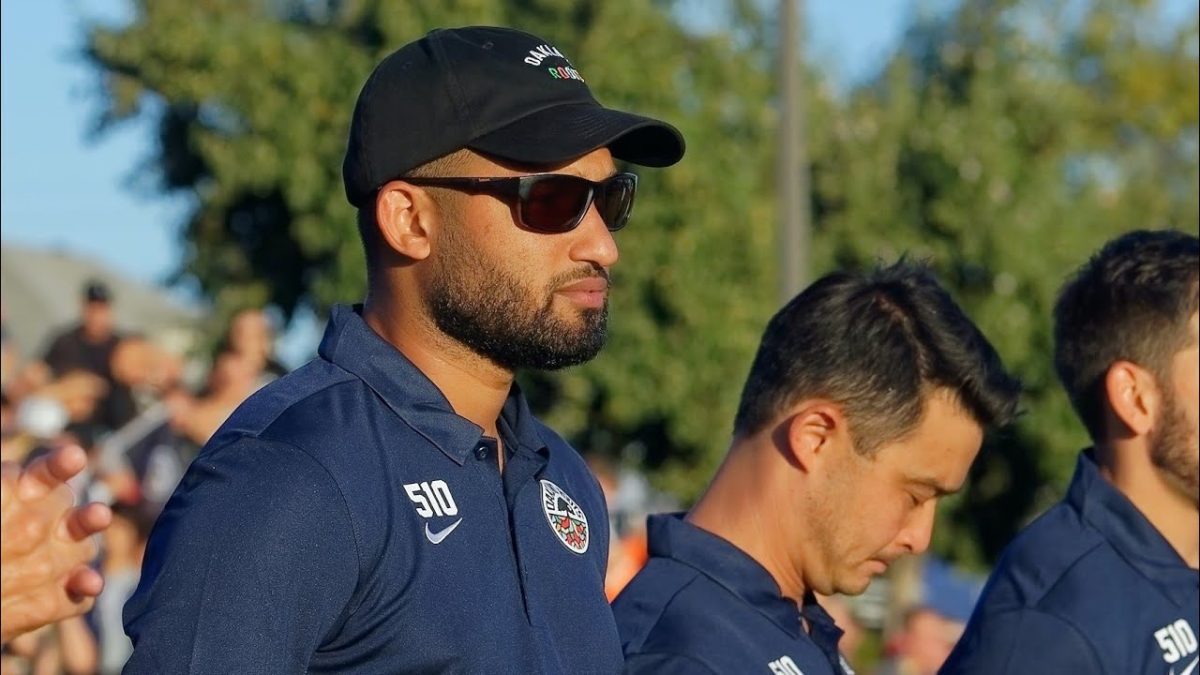
Winning the “big game”, hoisting a championship trophy, and making you school proud. That’s what playing college football was about in the early days.
However, times have changed since the days of leather helmets and black & white T.V. sets. College football has become more about money and less about winning. In the 1970’s, college football had become the most attractive television package for networks other than professional football. With the evolution of media and increasing popularity, college football has turned into widely televised multimillion dollar business.
In fact, college football is the only collegiate sport that rakes in consistent money other than college basketball. In college football, teams from popular conferences like the Big-12, Pac-10, SEC, and Big- 10 are often referred to as “automatic qualifiers.” Teams from these conferences can have a losing season and still generate up to $17 million off popularity alone. Unlike professional football, college football teams earn huge sums of money and major television coverage by being selected in Bowl Championship Series games (BCS), rather than playoff competition. It is the only sport where one can argue that media has more control of a team’s destiny than the actual players and coaches. The fact that teams make big revenue and earn higher BCS rankings due to conference popularity makes it harder for teams from lesser known conferences such as the Western Athletic Conference (WAC) to get a shot at a BCS title.
Take for instance the 2010 Tostitos Fiesta Bowl champion Boise State Broncos team. Boise State finished their season undefeated at 14-0, which earned them a shot at a BCS title game versus the also undefeated, Texas Christian University (TCU). Boise State went on to win that game 17 to 10. It was the first time ever that two non- “automatic qualifiers” were to be selected in a BCS bowl in the same season. However, Boise State was not crowned the National Champion, that title was granted to the Alabama Crimson Tide who defeated the University of Texas Longhorns in the CitiBank Rose Bowl. All four teams had the same undefeated record, but Alabama is the national champion simply because they are a team from a more popular conference, the SEC, and can receive higher votes by tradition alone. This situation happens yearly, and because of it, many suggest that a playoff system should replace the BCS system so teams like Boise State can prove it on the field that they are just as elite as the “automatic qualifier” teams.
Surprisingly enough, there are players and coaches that are getting the short end of the stick, but still prefer the BCS over a playoff. Boise State assistant coach and bay area native, Chris Strausser who got his start in coaching at Menlo College in Atherton, has no problem with the BCS despite his team not being voted number one.
“I have always been a huge fan of traditional bowl games, I personally have no interest in a playoff system,” says Coach Strausser. “Everyone has the desire to be #1, but there is a lot more to what we do than being #1. I like the system (they way it is). Way too much time is spent talking about this subject.”
In professional football, television revenue is distributed evenly throughout the NFL, but in college football revenue sharing goes through the conference. Therefore, a team like the Florida Gators receives major television coverage not only because they have a great football program, but because they also play in a conference packed with teams that houses a vast amount of “automatic qualifiers.”
Boise State has had a successful football program over the past ten years, but the same cannot be said for other teams in their conference. They may generate a lot of revenue for the school, but not nearly as much as SEC teams, who hold a stronger conference. Boise’s State’s “underdog” winning and role has earned them more coverage from ESPN, which has helped their ability to attract recruits.
“Our media attention does help us with regards to recruiting. The amount of games we have played on ESPN over the last 10 years has really helped us,” says Coach Strausser. “It has been a pain the ass to us because we have to say ‘yes’ to their requests, but they have helped our brand get recognized.”
According to Coach Strausser, the relationship between college football and media may not always be a smooth situation, but it does have its perks. Not only do television stations like ESPN help schools like the Boise State Broncos push their brand to the forefront, but it also brings in more sponsors, which in turn equals more money.
“I am well aware that media (mostly TV) helps our cause and raises coaches salaries, and I certainly appreciate that,” says Coach Strausser. “Advertising and sponsors make our world go ‘round; the money has gotten borderline ridiculous in our business and it is mostly due to sponsors,”
Additionally, it’s obvious that sponsors play a huge role in the business of college football, being that all team uniforms are sponsored by brands like Nike and Adidas. Not to mention that every bowl game has the name of a sponsor in front of it – the Tostitos Fiesta Bowl being a prime example.
The combination of big sponsors and national television coverage not only makes the schools popular, but it also puts the players in the forefront. Often times, college athletes become superstars before they even turn pro, like former Ohio State runningback Maurice Clarett. Clarett’s time under the spotlight was not handled well, it led him to believing he was ready for the NFL prematurely which lead him into getting in trouble with the law.
“I don’t always think media makes stars out of athletes too soon, I think many kids and young adults are not surrounded by people that educate them well enough on the importance of staying grounded,” says Coach Strausser. “ The old saying ‘don’t believe the hype’ can go a long way.”
Being under the spotlight can put pressure on young athletes once they reach the college level. It is important to the careers of both the players and their coaches to learn how to conduct themselves with the media.
“We spend a significant amount of time educating our players on how to deal with the media. We also tell them that we cannot tell them what to say, so they need to trust us and make good decisions,” says Coach Strausser. “As a coaching staff, we talk a lot about how we want to approach certain subjects with the media, so although we are not trained, we are pretty well versed.”
And with 2 BCS titles under their belt, the Boise State Broncos are getting all the media training they need considering they are coming from such a small place like Boise, Idaho. While many feel the Broncos are always the underdog in the BCS fiasco, Boise’s recent success’s give Coach Strausser a positive outlook on the Broncos relationship with the media.
“I think our team receives pretty good media attention for the size of area we live in, everyone has their opinion about the Broncos, some good, some bad. Ultimately, I think we are in everyone’s discussion at some point,” says Coach Strausser, “I think two BCS victories has certainly helped that.”
A part of Boise State’s success is because they don’t complain about things they can’t control, like their amount of coverage. Coach Strausser and his Broncos don’t mind if the media looks at the “automatic qualifiers” over them. They wear their lack of respect like a badge of honor. They know that if they keep playing with a chip on their shoulder, everything will fall into place.
“I know this: 5 years ago nobody would even consider having conversations about us possibly competing for a national championship and now I hear that debate a lot,” says Coach Strausser.
Regardless if Boise State gains national respect or not, the media will continue to have stories, and that’s fine with the Broncos and Coach Strausser. Sports and media are two businesses and they both make a lot of money together. Coach Strausser doesn’t have a problem with that; all he asks is that the media be responsible for the accuracy of their reports.
“The biggest change I would like to see with the media as it relates to college football is for the media to be held accountable for getting their facts right,” Coach Strausser says. “When guys speculate and put coaches’ careers in jeopardy by reporting speculation, they need to feel the pain of that.”
The actions of the media can certainly put a coach’s job in jeopardy, as many coaches have lost jobs while under media scrutiny. College football has definitely climbed the ladder of media priority. It’s more than sports. It’s business.







